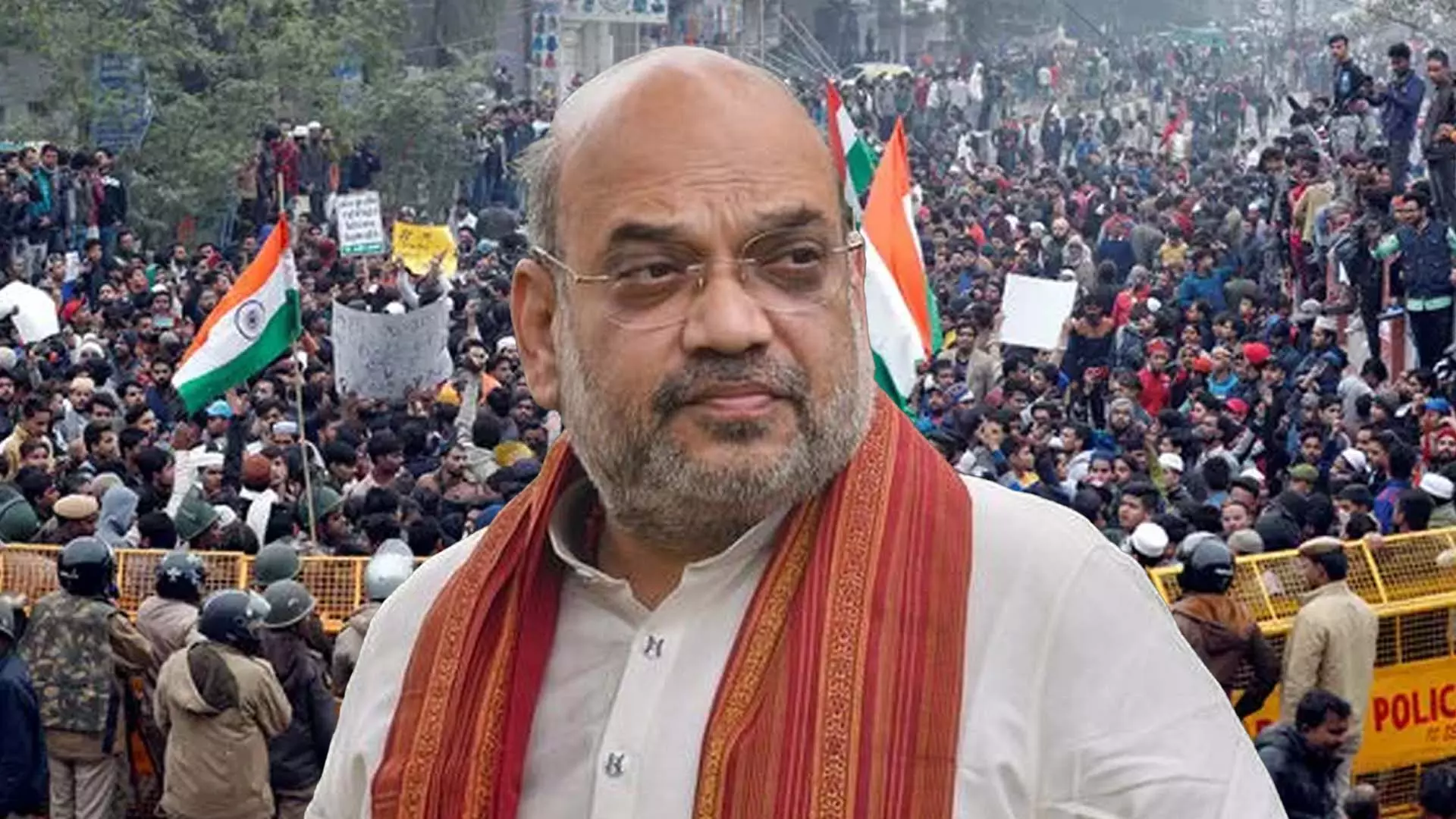
Why has Amit Shah ordered a probe into past protests? | Yashovardhan Azad exclusive
Former IPS officer Yashvardhan Azad weighs in on the government’s directive to the BPRD, its implications for democracy, and the feasibility of a protest SOP

In its latest episode of Capital Beat, The Federal spoke with former IPS officer and security expert Yashvardhan Azad about Union Home Minister Amit Shah’s reported directive to the Bureau of Police Research and Development (BPRD) to review all major protests in India since 1974. The discussion examined whether such a study could aid in better handling of agitations or risk undermining democratic freedoms.
How do you view the home minister’s directive to the BPRD to study protests held after 1974?
The intention is unclear. From what’s reported, the idea seems to be about preventing agitations through a standard SOP. But I find it difficult to see how a single SOP can prevent protests, since each is different. Normally, intelligence agencies gather details on the size, intent, demands, funding, and players behind any agitation. All that information is available. Perhaps the concern is about “vested interests,” maybe even foreign actors, but such monitoring is routine.
Some see this as a potential threat to democratic freedoms, citing the way the farmers’ and wrestlers’ protests were handled. Do you see red flags?
Not particularly. Activists have long faced pressure, as seen with the women wrestlers’ agitation or during the farm laws protests. That trend isn’t new. I don’t know if this study will embolden authorities further, but dissent has already been dealt with firmly at times. If officials want to see whether foreign influence played a role in the farm or CAA protests, that information is already available. I doubt this exercise will add much, even with financial agencies involved.
According to reports, the BPRD will analyse reasons, patterns, and “behind-the-scenes” players. Is the government trying to prevent a Nepal-like movement or the rising ‘vote chori’ campaign?
It’s natural for any government to be cautious when student-led movements erupt in neighbouring countries. Nepal’s protests toppled a government by raising corruption and maladministration issues. But rather than a broad survey, more effective intelligence work would be to assess public sentiment—among students, traders, civil society, and the poor—and respond quickly with policy measures.
Prime Minister Modi once called certain protesters 'andolan jeevis'. Could an SOP target activists?
You don’t need an SOP to detain activists under preventive arrest. 'Andolan jeevis' are part of any democracy. They shouldn’t be rounded up just for voicing concerns. The police already keep files on major agitations, their participants, funding sources, and arrests. I’m unsure what BPRD can add except compiling data into graphs or presentations.
Why involve agencies like the Enforcement Directorate or Financial Intelligence Unit?
Perhaps they’re mixing intelligence-gathering with ground feedback. What’s really needed is credible, in-depth information from the field—better supervision of reports and swift policy responses. Knowing what worries students, traders, or marginalised groups is more useful than financial probes.
The ministry may reopen old case files. Could that target past activists?
It’s possible. Some cases left dormant after protests could be revived, creating resentment. My advice would be to let sleeping dogs lie. Democracy works best through negotiation and dialogue, not by reviving tensions or maintaining “Stasi-style” files.
Could this move be a message to police and agencies to prepare for more agitations?
Policemen are always alert to protests. District chiefs immediately assess causes, meet leaders, and set up designated spots. If there’s a message, it’s a general one: be vigilant. The home minister is within his rights to say that.
Given the details, including a committee to examine past records, how do you see this shaping up?
If the aim is to chronicle protest history, that’s fine. But if it’s used against citizens or activists, it risks undermining democracy. It’s better to address public grievances early rather than rely on old files or heavy-handed tactics.
The content above has been transcribed from video using a fine-tuned AI model. To ensure accuracy, quality, and editorial integrity, we employ a Human-In-The-Loop (HITL) process. While AI assists in creating the initial draft, our experienced editorial team carefully reviews, edits, and refines the content before publication. At The Federal, we combine the efficiency of AI with the expertise of human editors to deliver reliable and insightful journalism.

